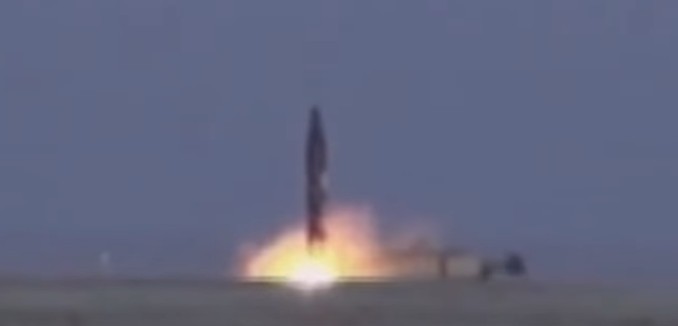Following Iran’s launch of a newly unveiled ballistic missile capable of striking Israel, President Donald Trump questioned the effectiveness of the 2015 nuclear deal.
On Saturday, Iran claimed to have successfully test-launched a Khorramshahr ballistic missiles capable of carrying multiple warheads and with a range of 2,000 kilometers (1,242 miles), enough to reach Israel.
“Iran just test-fired a Ballistic Missile capable of reaching Israel.They are also working with North Korea.” Trump tweeted on Saturday in response to the launch. “Not much of an agreement we have!”
Next month, Trump must decide whether or not to certify the nuclear deal. One of the criteria that Trump will have to consider is whether or not the deal serves the national security interests of the U.S. The U.S. Ambassador to the UN Nikki Haley explained in a speech earlier this month:
But, importantly, the law asks the president to certify several things, not just one. The first is that Iran has not materially breached the JCPOA. That’s the one everyone focuses on. But the Corker-Cardin law also requires something else – something that is often overlooked. It asks the president to certify that the suspension of sanctions against Iran is appropriate and proportionate to Iran’s nuclear measures and that it is vital to the national security interests of the United States.
So regardless of whether one considers Iran’s violations of the JCPOA to have been material, and regardless of whether one considers Iran’s flouting of the UN resolution on its ballistic missile technology to be “non-nuclear,” U.S. law requires the president to also look at whether the Iran deal is appropriate, proportionate, and in our national security interests. Corker-Cardin asks us to put together the pieces of the jigsaw puzzle.
Under its structure, we must consider not just the Iranian regime’s technical violations of the JCPOA, but also its violations of Resolution 2231 and its long history of aggression. We must consider the regime’s repeated, demonstrated hostility toward the United States. We must consider its history of deception about its nuclear program. We must consider its ongoing development of ballistic missile technology. And we must consider the day when the terms of the JCPOA sunset. That’s a day when Iran’s military may very well already have the missile technology to send a nuclear warhead to the United States – a technology that North Korea only recently developed.
Iranian President Hassan Rouhani vowed that “We will buy, sell and develop any weapons we need and we will not ask for permission or abide by any resolution for that,” following a ballistic missile test that defied UN Security Council Resolution 2231, which endorsed the nuclear deal, one month after the deal was agreed to. A few months later, Rouhani called on the nation’s military to ramp up its development of ballistic missiles.
[Photo: anna tom / YouTube]




